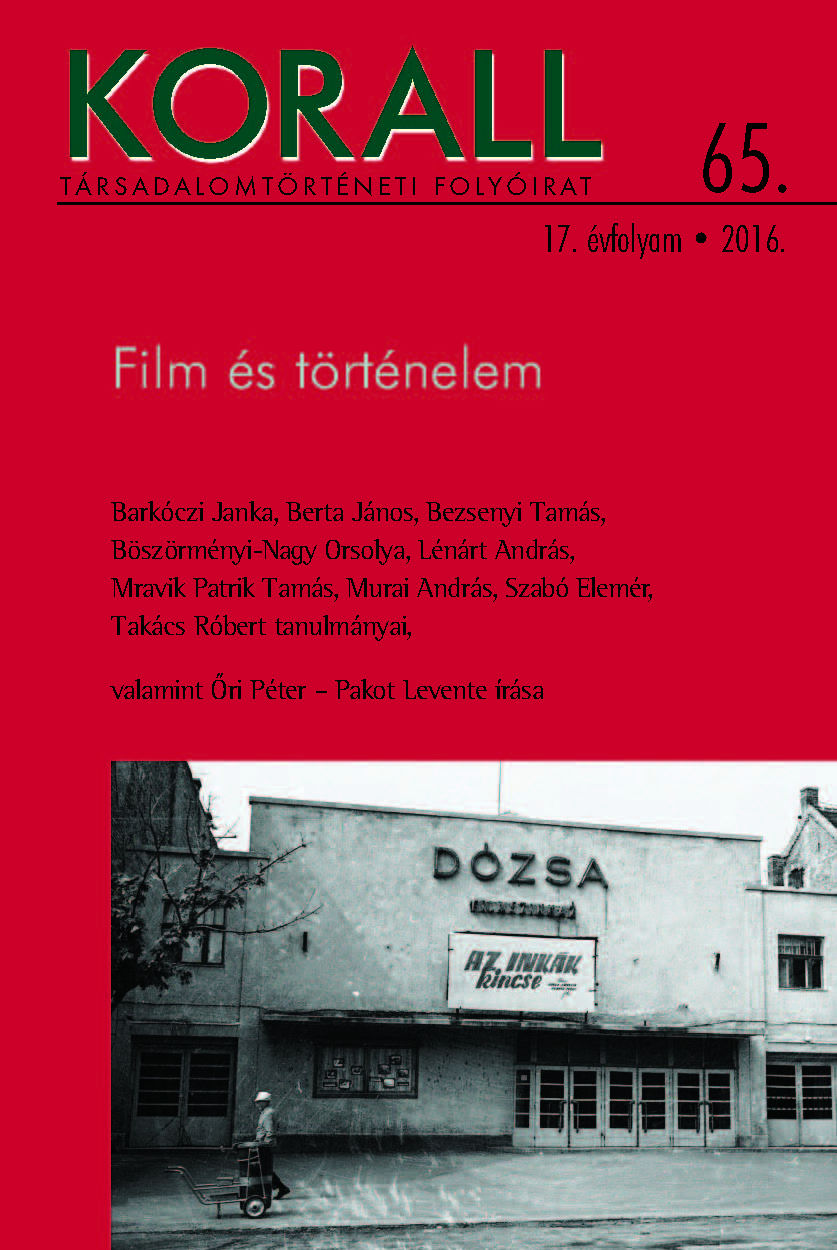A nyugati film és közönsége Magyarországon Sztálin halálától Helsinkiig (1953–1975)
Western Film and its Audience from the Death of Stalin to Helsinki (1953–1975)
Author(s): Róbert TakácsSubject(s): Cultural history, Social history, Film / Cinema / Cinematography
Published by: KORALL Társadalomtörténeti Egyesület
Keywords: history;film;social history;
Summary/Abstract: From 1954 onwards, Hungarian audiences could see western-made films relatively often in the film theatres. By the early 1970s the original figure of thirty films per year doubled. From the beginning of the destalinization process onwards, centralised film import, controlled by the Film Import Committee of the Ministry of Culture, implemented an increasingly open policy. The ideological filter was not abandoned and ‘progressive’ western films exercising social criticism remained the preference, at the same time cultural policy was increasingly permissive about the right to entertainment and more and more films were shown purely for their entertainment value. From the 1960s onwards, the international film crisis spilled over from beyond the borders and it became clear that 240 KORALL 65. Hungarian programming policy needed films made in the West to complement Hungarian ‘superproductions’ in their bid fill the emptying theatres with audience. The imported films predominantly came from countries with long-standing filmmaking traditions: Italy, France, Great Britain, the US and West Germany. Notably, film import was often much delayed: western films reached Hungarian audiences with a two-three-year lag. Contemporary cultural policy did not shirk from screening seminal but problematic works of art, quite the contrary; they strove to make the oeuvre of famous directors available, although these were mostly shown in an alternative network frequented by smaller audiences. The process of film import was transparent for the audience, and they often bombarded the decision-makers with their requests. While they mostly demanded more western film stars and commercial films in the cinemas, left-wing criticism was also formulated about the lack of quality and social message brought about by the more permissive policies. There were even a couple of instances when certain films had to be removed from the programme by public demand.
Journal: Korall - Társadalomtörténeti folyóirat
- Issue Year: 2016
- Issue No: 65
- Page Range: 137-163
- Page Count: 27
- Language: Hungarian

